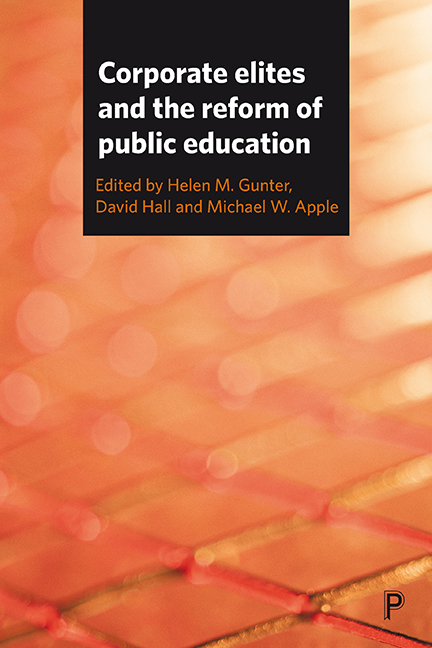Book contents
- Frontmatter
- Contents
- Foreword
- Notes on contributors
- Introduction: Scoping corporate elites and public education
- Part 1 Corporatised governance: system perspectives
- Part 2 Corporatised governance: provision perspectives
- Conclusion: The challenge of corporate elites and public education
- References
- Index
eight - (Re)producing elites: meritocracy, the state and the politics of the curriculum in Singapore
Published online by Cambridge University Press: 05 April 2022
- Frontmatter
- Contents
- Foreword
- Notes on contributors
- Introduction: Scoping corporate elites and public education
- Part 1 Corporatised governance: system perspectives
- Part 2 Corporatised governance: provision perspectives
- Conclusion: The challenge of corporate elites and public education
- References
- Index
Summary
Introduction
Meritocracy today is no longer as Singaporeans have come to know it. In the wake of what the Prime Minister of Singapore himself admits as the city-state's ‘watershed elections’ of 2011 (Lee, 2012) – which saw, among others, the ruling People's Action Party (PAP) capturing a historically dismal 60% of the popular vote and two cabinet ministers losing their electoral seats – the founding ideology of the world's most successful marriage between high capitalism and modern authoritarianism has come under increasing strain and disapprobation.
Critics charge that the logic and practice of meritocracy have, over time, engendered an elitist class that narrowly (re-)fashions ‘merit’ in its own image, and whose considerable growth in influence in matters of social and economic policy runs afoul of its diminishing ability to represent the perspectives of the ‘broad masses’ (K.P. Tan, 2008; Lim, 2013; see also Desker, 2013). The government has responded, in part rhetorically, by injecting into the public discourse on meritocracy a dizzying slew of compound terms – ‘inclusive meritocracy’, ‘compassionate meritocracy’, ‘meritocracy of equals’, ‘continuing meritocracy’ (Goh, 2013; Tharman, 2013) – all aimed at recovering the egalitarian dimension of what was once taken boldly as an article of faith.
As this chapter will show, however, at least in the education system wherein lies the colloquial starting point, these tensions – as well as attempts to mitigate them – are not new. After first briefly discussing how in Singapore the concept of meritocracy captures both elitist and egalitarian aspirations, the second section considers the ways in which Singapore's education policies have historically vacillated between these conflicting dimensions. This broad survey paves the way towards reframing understandings of meritocracy as not just an inherently unstable concept but also, as developed in the third section, an ideology that is negotiated and contested by dominant social groups as these seek to legitimise a given distribution of social power.
It is, however, important to recognise that dominant ideologies are not only produced in the education system; they are also reproduced through it, often in far more complex ways. To see how these ideologies and their tensions animate the very mechanism that sits at the centre of the reproduction of (in)equality – the curriculum – this chapter concludes with an account of how one particular subject area is differently taught in an elite school and a mainstream school.
- Type
- Chapter
- Information
- Corporate Elites and the Reform of Public Education , pp. 119 - 132Publisher: Bristol University PressPrint publication year: 2017



